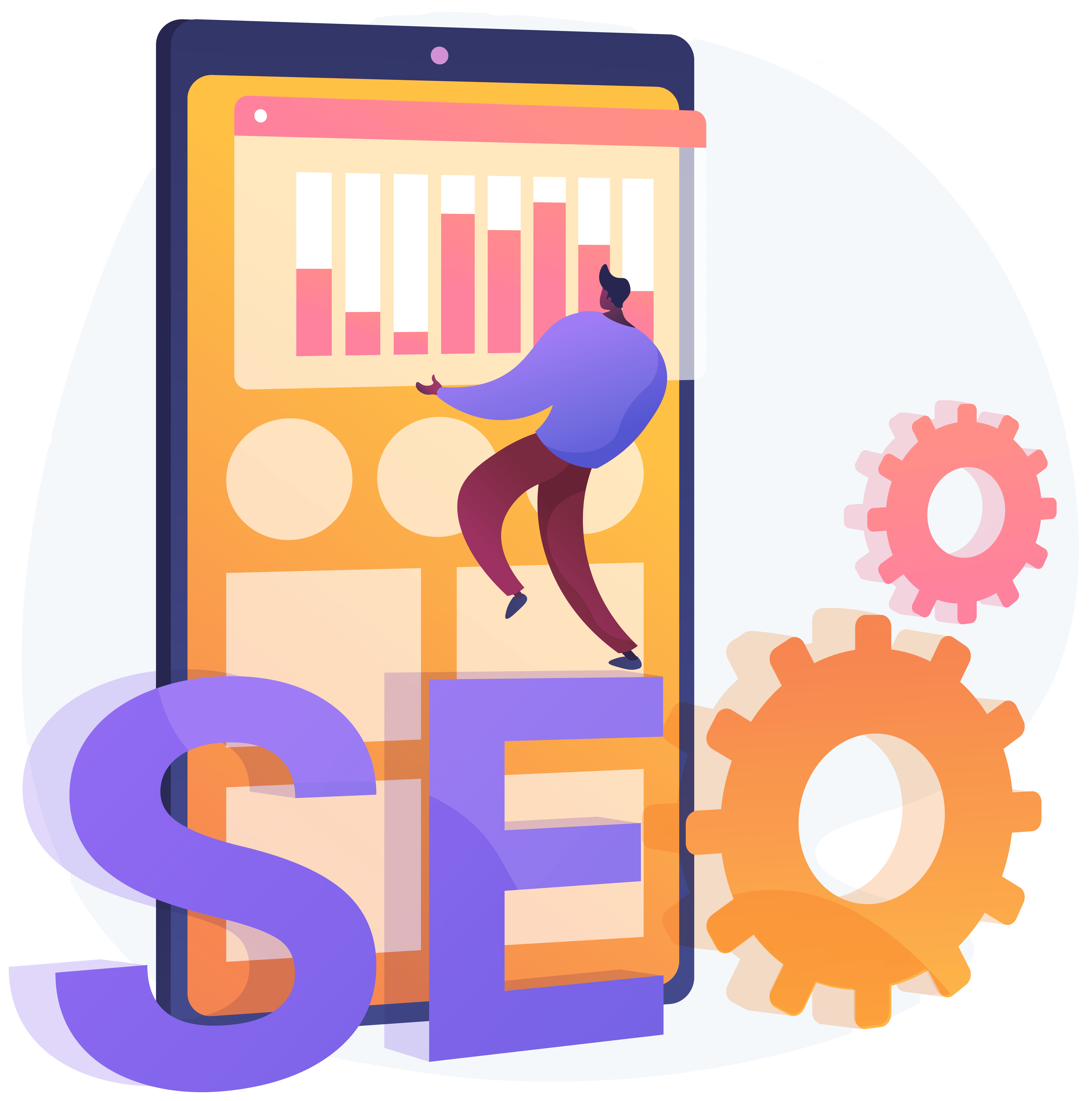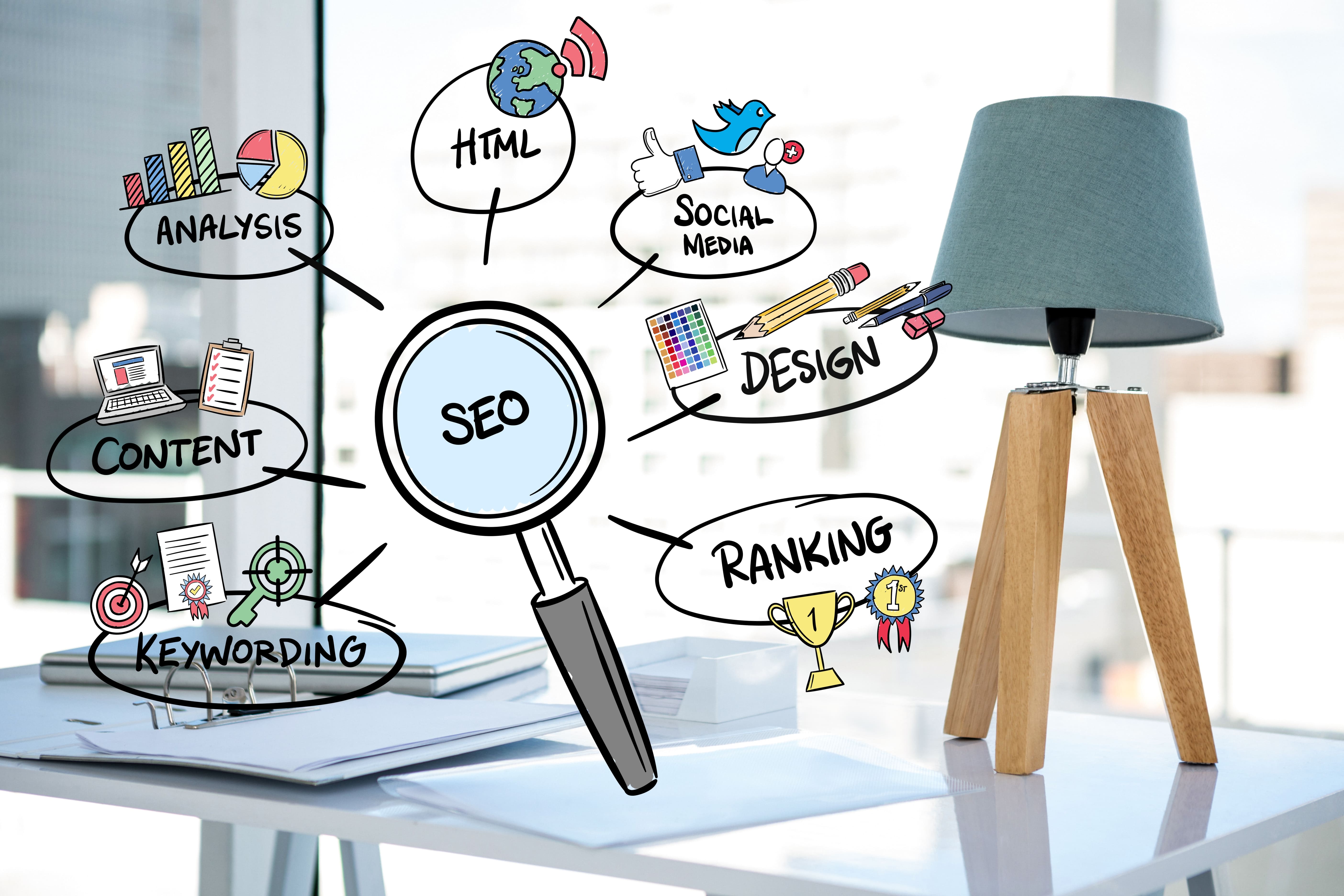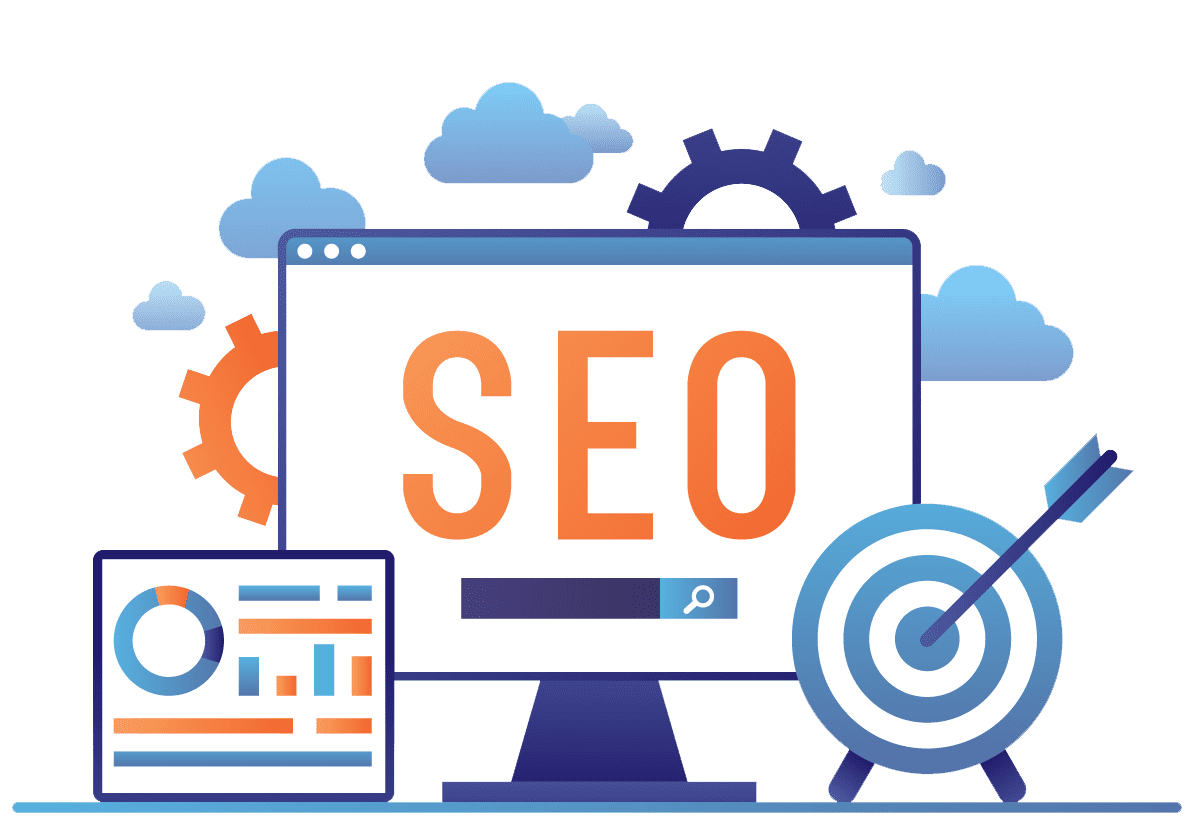-
Mobile App
-
Website Design
-
Digital Marketing
-
Software Development
-
IT Consulting
The main contrast between SEO and paid advertising is that SEO entails "organic" ranking, which means you don't have to pay to be in that spot. In another way, SEO is the act of optimizing a piece of online content such that it appears towards the top of a search engine's page when a search is done.
Major search engine such as Google is where the bulk of online searches begin. In reality, Google is the starting point for 75% of all searches. To better understand how to rank your content better in searches, you must first understand how search works.

How Does SEO Work?
Search engines such as Google and Bing utilize bots to crawl the web, moving from site to site, collecting information, and indexing them. Imagine the index to be a large library where a librarian can help you find exactly what you're looking for by pulling up a book (or a web page). The computers then analyze the sites in the index using hundreds of ranking factors or signals to determine the order in which they should appear in search results for a given query. The librarian, in our library analogy, has read every book in the collection and can tell you which one will provide the answers to your questions.
Since it's impossible to buy your way to the top of organic search rankings like you could do with sponsored search ads, you'll need to employ the expertise of SEO specialists.
Why Is SEO Important For Marketing?
Because individuals make trillions of searches every year, usually with commercial intent to find information about products and services, SEO is a critical component of digital marketing. Brands' major source of internet traffic primarily searches, which are supplemented by other marketing channels. Having a higher ranking in search results than your competitors might have a big impact on your profits.
However, search results have changed recently to provide users with more direct answers and information, which are more likely to keep visitors on the results page rather than sending them to other websites.
To summarize, SEO is the basis of a well-rounded marketing strategy. You can apply what you learn about your website visitors to your paid and organic advertising, your website, and your social media assets, among other things.
The Important Aspects Of SEO Are The On-Page And Off-Page SEO
When it comes to SEO as a whole, two approaches are equally important: on-page SEO and off-page SEO. The goal of on-page SEO is to boost your rankings through provided content. This includes, among other things, keywords into your pages and content, consistently producing high-quality material, and ensuring that your meta-tags and titles are keyword-rich and written well. Building backlinks is an example of off-page SEO. Building relationships and providing content that others want to share are both parts of this equation. It is crucial to SEO success, although it requires a large amount of effort.

Black Hat Vs. White Hat SEO Strategies
In the SEO world, going for rapid gains is referred to as "Black Hat SEO". Black hat SEO practitioners use covert tactics like keyword stuffing and link scraping to rank quickly. In the short term, it may increase traffic to your site, but over time, Google penalizes and even blacklists your site, seizing the ability to rank.
White Hat SEO is the only way to build a sustainable online business. If you do SEO in this manner, you'll concentrate on your human audience. You'll strive to provide them with the most relevant information and make it easily accessible by adhering to the search engine's guidelines.
Let me shed some more light on these issues:
- Duplicate content: When seeking to rank for a given keyword, a site owner may duplicate content to repeat the phrase in their text. Google penalizes websites that employ this method.
- Invisible text and keyword stuffing: Before now, a black hat method was to stuff a bunch of keywords down the bottom of your articles and color them the same as the backdrop. This method will quickly get you blacklisted. The same may be said for pushing keywords into places where they don't belong.
- Cloaking and redirection: There are correct and incorrect ways for redirection. Buying a bunch of keyword-rich domains and funneling all of the traffic to one website is the wrong way to go.
- Poor linking practices: buying a Fiverr package promising 5,000 links in 24 hours is not the ideal way to build links. In your niche, you'll need links from sites with relevant information and high traffic.
SEO Marketing Basics
It's now time to learn about SEO marketing. Acquiring the knowledge is one thing; putting it into practice requires a significant amount of effort and time. You can't make a change today and expect to reap the rewards the next day. SEO works daily to achieve long-term success.
- Content
- Keyword research and selection
- HTML
- Site Architecture
- Trust
- Personal SEO factors
- Social Factors
- Google EAT guidelines.
Updates To The Google Algorithm And SEO...
Because of the word "algorithm," SEO can seem inaccessible or unachievable. A search engine's algorithm is a set of instructions for calculating and ranking websites based on the search query provided.
You may have heard that algorithms are always changing, and this is true to some extent. Google releases "core upgrades" several times a year to better assist online searchers. You can refer to the Moz website, to look at the history of Google algorithm changes.
While Google may make changes from time to time, your primary focus should remain on providing high-quality content, leveraging relevant keywords, and developing trustworthy backlink relationships. When it comes to Google's algorithms, you should avoid attempting to "hack the system," as it's one of the reasons for the continual updates to screen out people who do so. Focusing too much on the algorithm and not enough on your content could undermine your rankings.
Get In Touch